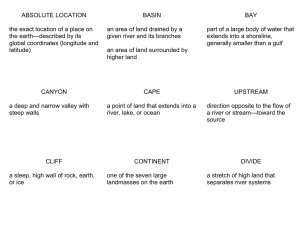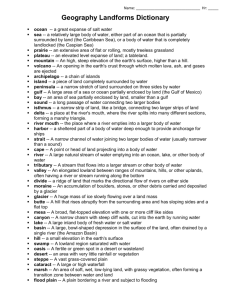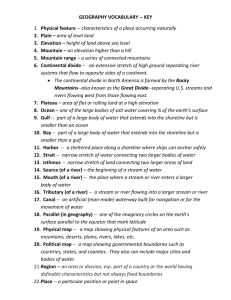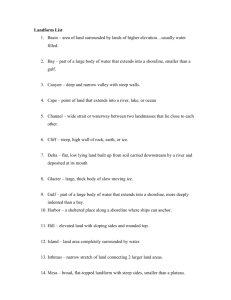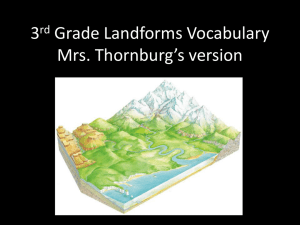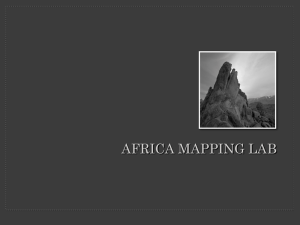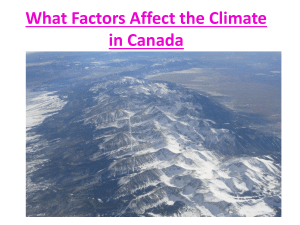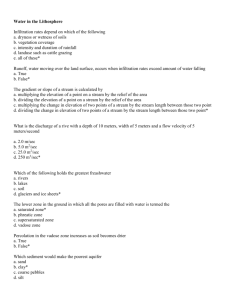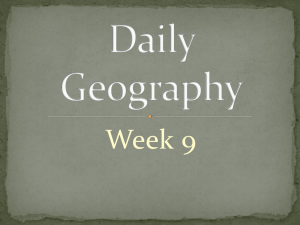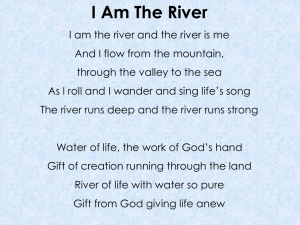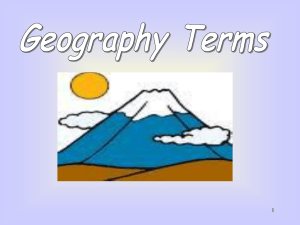Geography terms - Freedom Area School District
advertisement
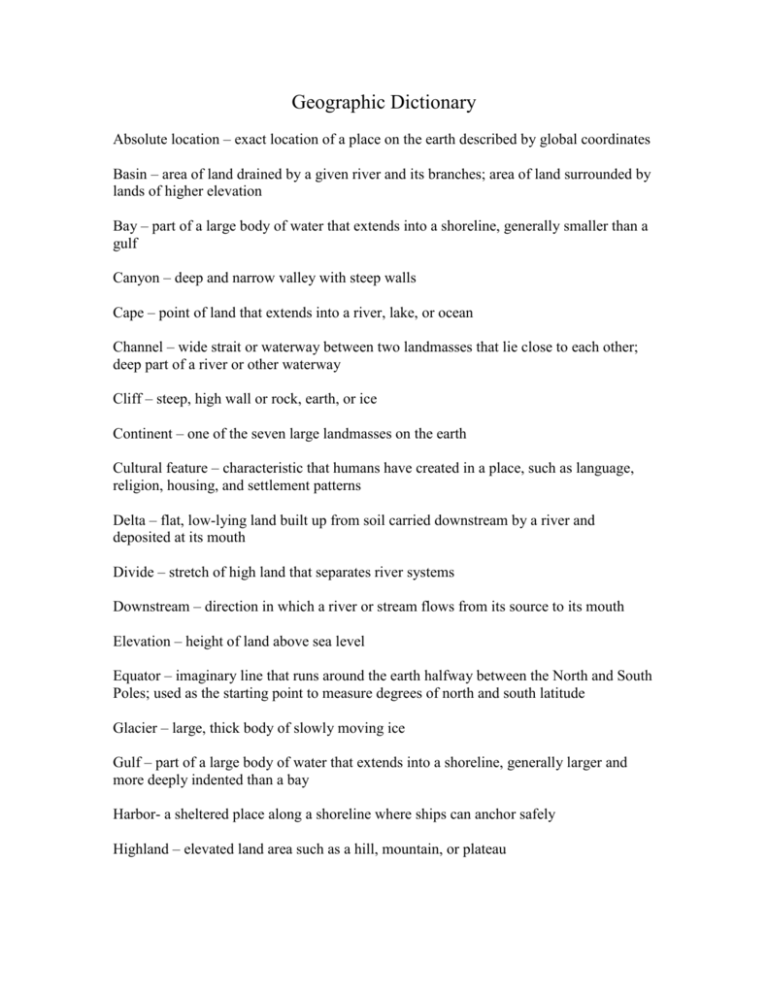
Geographic Dictionary Absolute location – exact location of a place on the earth described by global coordinates Basin – area of land drained by a given river and its branches; area of land surrounded by lands of higher elevation Bay – part of a large body of water that extends into a shoreline, generally smaller than a gulf Canyon – deep and narrow valley with steep walls Cape – point of land that extends into a river, lake, or ocean Channel – wide strait or waterway between two landmasses that lie close to each other; deep part of a river or other waterway Cliff – steep, high wall or rock, earth, or ice Continent – one of the seven large landmasses on the earth Cultural feature – characteristic that humans have created in a place, such as language, religion, housing, and settlement patterns Delta – flat, low-lying land built up from soil carried downstream by a river and deposited at its mouth Divide – stretch of high land that separates river systems Downstream – direction in which a river or stream flows from its source to its mouth Elevation – height of land above sea level Equator – imaginary line that runs around the earth halfway between the North and South Poles; used as the starting point to measure degrees of north and south latitude Glacier – large, thick body of slowly moving ice Gulf – part of a large body of water that extends into a shoreline, generally larger and more deeply indented than a bay Harbor- a sheltered place along a shoreline where ships can anchor safely Highland – elevated land area such as a hill, mountain, or plateau Hill – elevated land with sloping sides and rounded summit; generally smaller than a mountain Island – land area, smaller than a continent, completely surrounded by water Isthmus – narrow stretch of land connecting two larger land areas Lake – a sizable inland body of water Latitude – distance north or south of the Equator, measured in degrees Longitude – distance east of west of the Prime Meridian, measured in degrees Lowland – land, usually level, at a low elevation Map – drawing of the earth shown on a flat surface Meridian – one of many lines on the global grid running from the North Pole to the South Pole; used to measure degrees of longitude Mesa – broad, flat-topped landform with steep sides; smaller than a plateau Mountain – land with steep sides that rise sharply (1000 feet or more) from surrounding land; generally larger and more rugged than a hill Mountain peak – pointed top of a mountain Mountain range – a series of connected mountains Mouth (of a river) – place where a stream or river flows into a larger body of water Ocean – one of the four major bodies of salt water that surround the continents Ocean current – stream of either cold or warm water that moves in a definite direction through an ocean Parallel – one of the many lines on the global grid that circle the earth north or south of the Equator; used to measure degrees of latitude Peninsula – body of land jutting into a lake or ocean, surrounded on three sides by water Physical feature – characteristic of a place occurring naturally, such as a landform, body of water, climate pattern, or resource Plain – area of level land, usually at a low elevation and often covered with grasses Plateau – area of flat or rolling land at a high elevation, about 300 – 3000 feet high Prime Meridian – line of the global grid running from the North Pole to the South Pole through Greenwich, England; starting point for measuring degrees of east and west longitude Relief – changes in elevation over a given area of land River – large natural stream of water that runs through the land Sea – large body of water completely or partly surrounded by land Seacoast – land lying next to a sea or ocean Sea level – position on land level with the surface of a nearby ocean or sea Sound – body of water between a coastline and one or more islands off the coast Source (of a river) – place where a river or stream begins, often in highlands Strait – narrow stretch of water joining two larger bodies of water Tributary – small river or stream that flows into a larger river or stream; a branch of a river Upstream – direction opposite the flow of a river; toward the source of a river or stream Valley – area of low land between hills or mountains Volcano – mountain created as liquid rock or ash erupts from inside the earth
